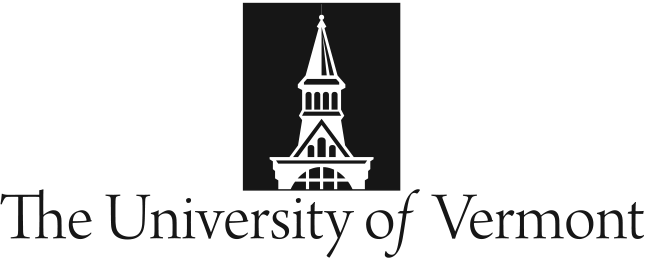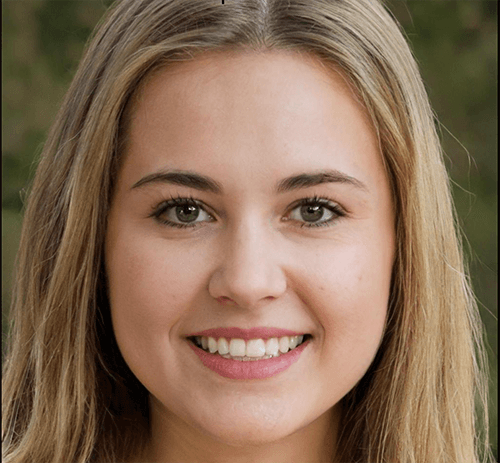Situated in the northeastern region of the United States, Vermont stands not only as a stronghold of natural beauty, with its breathtaking landscapes of rolling hills, thick forests, and tranquil lakes, but also as a lighthouse of academic excellence. The state is known for its prosperous educational background and has been a focal point for students and teachers. Nicknamed the “Green Mountain State,” Vermont commits to education. It is visible in its various institutions, community initiatives, and, notably, the programs it offers to national and international students. Among its diverse assortment of disciplines, one notable click the eye is Speech-Language Pathology.
SLP is a field committed to diagnosing, treating, and researching communication and swallowing disorders in individuals of all ages. As society is growing more aware of the necessity of efficient communication and the issues faced by those with communication disorders, the demand for qualified SLP experts has increased tenfold. This boost in order intersects impressively in Vermont, where the fusion of urban and rural communities offers a wide range of opportunities for SLP practitioners. Vermont provides a rich environment for SLP professionals to make a meaningful impact, whether supporting older adults in nursing homes, assisting children in classrooms, or doing cutting-edge research.
Speech-language Therapy Programs in Vermont
The Green Mountain State acknowledges the importance of Speech-Language Pathology by hosting comprehensive academic programs at different levels – bachelor’s, master’s, and Ph.D. For undergraduates, the basics in SLP are laid solid with a curriculum that introduces them to the foundation and encourages them to explore. Those who pursue a masters in SLP get their fair share of academic and clinical experiences, which ensures that they are ready to work in clinical setups once they graduate. Doctorate-level degrees are available for those who want to make a mark in the field through comprehensive and independent research, which are the nexus of research and innovation.
Get your degree in SLP from an institute in Vermont. You won’t just achieve an academic pursuit but also become a part of a community that values effective communication and understanding. So, if you’re contemplating a future in Speech-Language Pathology, Vermont’s programs await, promising an education and an experience that lasts a lifetime.
Vermont Bachelors in SLP and Speech Therapy
University of Vermont (UVM)- Bachelor’s of Science in Communication Sciences and Disorders-

University of Vermont’s B.S. in Communication Sciences and Disorders provides a comprehensive study of human communication and exploration of the fields of SLP and audiology that prepare its students to assess, diagnose, treat, and help prevent swallowing and communication disorders in individuals of all ages. After graduating from UVM in the Communication Sciences and Disorders program, students can pursue an MS in related fields to become a speech-language pathologist or audiologist.
There are many reasons for you to choose UVM as the institute that fulfills your wish to become an SLP professional. One of those reasons is the detailed coursework, which helps students understand the differences between normal and disordered communication in SLP audiology and health sciences. Also, the hands-on practice helps students gain skills and experience through guided observations in the on-campus Center for Communication.
The faculty at UVM supports students’ pursuit of research by involving them in ongoing academic initiatives that cover both healthy and pathological communication across the lifespan. Students frequently go on to earn a Ph.D. in audiology or a master’s degree in speech-language pathology. You will learn about communication development and various communication disorders through classes, observations, and clinical experiences in UVM’s Communication Sciences and Disorders program. You can also gain a profound understanding of how communication disorders impact people’s lives.
You need 120 credit hours to complete this degree. The non-profit Eleanor M. Luse Centre for Communication, located at UVM, offers treatment for stuttering in both children and adults, voice, speech, and language therapy, and hearing health care. So you can get a top-notch academic education and gain immense clinical knowledge about your field under the same roof. So you don’t have to worry about getting out of your university and finding places to gain experience at observerships. Not many universities offer these kinds of benefits to their students. Students are motivated to collaborate in ongoing faculty projects outside the classroom. Faculty research encompasses normal and disordered communication throughout the lifespan and includes various topics related to speech-language pathology and communication disorders among children and adults.
Vermont Masters in Speech-language Pathology (MSLP) Programs
University of Vermont (UVM)- Master of Science in Communication Sciences and Disorders

The University of Vermont (UVM) offers an on-campus Master of Science in Communication Sciences and Disorders. It is an excellent option for those living in Vermont and passionate about helping those with communication disorders. Even people outside Vermont come here to fulfill their dream of becoming Speech-language pathologists. The M.S. in Communication Sciences and Disorders/Speech-Language Pathology offers the scholarly foundation and clinical experiences needed to get ready for the clinical fellowship and Certificate of Clinical Competence in Speech-Language Pathology (CCC-SLP). The best thing about getting your MS from this institute is The Eleanor M. Luse Centre for Communication: Speech, Language, and Hearing is a functioning clinic that offers speech-language pathology and audiology care. It is located on campus and is part of the Department. Students in the program’s first year use it as their major practicum location. In subsequent semesters, students are assigned to practice in diverse settings (e.g., hospitals, schools, nursing homes, kindergartens, home health organizations, etc.).
You can apply to this program in January every year, and the term usually starts around August. The degree takes two years to complete, including summers. If you have not completed the prerequisites for this degree because you have done your bachelor’s in some other subject, UVM has you covered. To meet the prerequisites for enrollment in the master’s program or to work as a speech-language pathologist assistant, there are online post-baccalaureate programs available. UVM’s 19-credit SLP program is offered entirely online. Students interested in finishing the undergraduate coursework necessary to register for a Master’s program should consider the Pre-Master’s Track.
The Communication Sciences and Disorders faculty conducts research in different areas related to SLP, such as autism and theory of mind, fluency and stuttering, speech and language development, speech sound abnormalities, apraxia of speech, brain damage, and cognitive-communication difficulties. Many opportunities exist for graduate students who wish to participate in faculty research projects. It is an excellent option for those who want to gain immense knowledge in the field while staying under the guidance of their educators, who are pro at what they do. It is also beneficial for students who wish to enroll in doctorate degrees after graduating from MS as it will provide them with a strong foundation in research tools and skills.
To graduate from this program, you must meet practicum clock hour requirements as mandated by ASHA certification eligibility and UVM requirements. For graduation, you need 400 clock hours, of which 25 can be clinical observation. You must accrue the remaining 375 hours of direct client contact. Learn more about clock hours and clinical requirements in the CSD Clinic Manual.
Doctorate in Speech-language Pathology (SLPD)
In the Green Mountain State of Vermont, currently, there is only one option for researching enthusiastic Speech-Language pathologists, and that one option is one that you should not let go of. Want to learn more about it? Keep reading.
The University of Vermont- Interprofessional Health Sciences Concentration in Communication Sciences and Disorders Ph.D.

The University of Vermont offers a Ph.D. in Interprofessional Health Sciences, which provides a broad spectrum of sub-topics and gives researchers a golden opportunity to work on a more comprehensive range of topics that link them to Interprofessional Health Sciences. The goal of the doctoral program in interprofessional health sciences is to expand cross-disciplinary and interprofessional research in the biological and psychological sectors as they relate to the health sciences. Students in this program comprehend, design, implement, and engage in interprofessional, hypothesis-driven research methodologies that support the application of research findings in practice.
Students benefit from tailored multidisciplinary research and teaching opportunities and obtain an exhaustive grasp of how health science affects individual and societal functioning. The dynamic systems approach used by the program to evaluate functioning in people with disabilities and devise treatments to improve health is based on the World Health Organization’s International Classification of Functioning, Disability, and Health. To be eligible to apply for this program, you must hold a master’s degree, or its equivalent, in a field that is closely related to health (such as movement science, exercise physiology, sports science, communication sciences and disorders, rehabilitating science, nursing, biomedical science, laboratory science, etc.).
Students holding a Bachelor of Science in a relevant field may, in exceptional cases, be given consideration if their research record, letters of recommendation from mentors, undergraduate grade point average, or Graduate Record Examination (GRE) scores demonstrate outstanding promise. So, if your academic background is highly promising, you may not even need a master’s degree to get admission to this program.
Doctoral students participating in the program are eligible for up to five competitive 12-month graduate assistantships annually. Assistantship winners will receive stipends for two years, following which they are anticipated to be financed by faculty or doctoral student research or training grants, additional teaching, or clinical practice or clinical supervision opportunities. Tuition assistance is provided to awardees for the length of the program as long as they maintain satisfactory academic standing.
The primary requirements for admission include:
- Application
- Three letters of recommendation
- Official transcripts of all colleges attended
- Statement of purpose
- Test of English as a Foreign Language (TOEFL) for non-U.S. residents
- Please note the minimum TOEFL score for this program is 100. Applicants must have the equivalent of a U.S. bachelor’s degree, which consists of 16 years of formal education.
Conclusion
Speech-language pathology is a rising field and is gradually gaining importance in the society. If you are someone who wants to provide services to people with communication disorders, you have a promising future. In Vermont, there are not many institutes that offer courses related to SLP, but the currently available programs should not be missed. So what are you waiting for? Grasp the biggest and brightest opportunity for yourself before all seats are taken.
Vermont Speech-Language Pathology Programs
| Program | University Name | City | State | Accreditation |
|---|---|---|---|---|
| Master's in Speech-Language Pathology (MS) | University of Vermont | Burlington | VT | ASHA |






